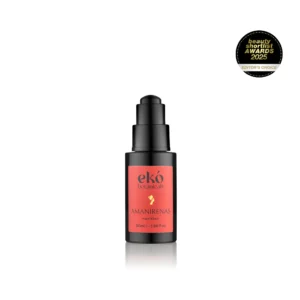In today’s complex regulatory environment, organizations across industries are increasingly prioritizing compliance to mitigate risks and ensure ethical operations. At the heart of these efforts lies the critical role of a compliance officer—an individual responsible for overseeing adherence to laws, regulations, and internal policies. Selecting the right candidate for this position is essential for safeguarding an organization’s reputation and operational integrity. But what qualifications should you seek when hiring a compliance officer? This article explores the essential attributes, skills, and credentials that make for an effective compliance professional.
Understanding the Role of a Compliance Officer
Before diving into qualifications, it’s important to understand what the role entails. A compliance officer serves as a gatekeeper who ensures that an organization operates within legal boundaries and industry standards. This includes developing compliance programs, conducting risk assessments, providing training, and acting as a liaison between regulatory bodies and company management. The role demands a keen eye for detail, ethical fortitude, and strong communication skills.
Educational Background: The Foundation of Compliance Expertise
While the educational requirements for compliance officers can vary by industry and organization size, a strong academic foundation is critical. Most professionals in this field hold at least a bachelor’s degree. Common areas of study include law, business administration, finance, or healthcare administration. For industries such as pharmaceuticals or finance, specialized degrees can be especially advantageous.
Beyond undergraduate education, many organizations prefer candidates with advanced degrees or certifications that demonstrate specialized knowledge. A master’s degree in law (LLM), business administration (MBA), or public administration can elevate a candidate’s profile, showcasing a commitment to understanding complex regulatory frameworks.
Certifications: Validating Compliance Competence
Certifications provide tangible proof of a candidate’s expertise and dedication to the compliance profession. Several well-recognized certifications can differentiate an applicant:
- Certified Compliance & Ethics Professional (CCEP): Offered by the Compliance Certification Board, this credential highlights proficiency in compliance and ethics programs.
- Certified Regulatory Compliance Manager (CRCM): Popular in the financial services industry, CRCM validates a candidate’s ability to manage regulatory compliance effectively.
- Healthcare Compliance Certification (CHC): For those in healthcare or pharmaceutical sectors, the CHC credential is highly regarded.
Certifications not only verify knowledge but also indicate a willingness to stay current with evolving regulations—a critical trait for compliance officers.
Relevant Experience: Practical Insight Matters
While education and certifications are important, hands-on experience often carries more weight. Ideally, candidates should have prior experience working in regulatory environments or in roles that require strong oversight and risk management. This might include positions in legal departments, auditing, risk management, or internal controls.
Experience in the specific industry is particularly valuable. For example, a compliance professional working in pharmaceuticals must be familiar with FDA regulations, clinical trial compliance, and drug safety standards. Organizations looking to hire in this sector might consider leveraging specialized recruitment services like Conselium Compliance Search, which offers tailored candidate sourcing for pharmaceutical compliance roles, ensuring the best industry-fit professionals are identified.
Analytical and Problem-Solving Skills
Compliance officers must sift through complex regulatory documents and interpret how they apply to everyday business activities. This requires strong analytical skills and attention to detail. The ability to identify potential compliance risks and develop practical solutions distinguishes exceptional candidates.
A great compliance professional doesn’t just spot issues—they proactively design policies and procedures to prevent violations. This forward-thinking approach helps organizations stay ahead of regulatory changes and avoid costly penalties.
Communication and Training Abilities
A compliance officer’s role is as much about education as it is about enforcement. They must communicate regulations clearly to various stakeholders, from senior management to frontline employees. Effective compliance officers develop training programs that enhance awareness and promote a culture of integrity throughout the organization.
Therefore, strong verbal and written communication skills are essential. Candidates who demonstrate the ability to translate complex legal jargon into accessible language are valuable assets.
Ethical Integrity and Discretion
Given the sensitive nature of compliance work, a candidate’s ethical compass is paramount. Compliance officers are often privy to confidential information and must handle it with discretion and professionalism. Trustworthiness and a commitment to ethical conduct ensure that they act as impartial guardians of compliance.
Technological Proficiency
In an era dominated by digital transformation, familiarity with compliance management software, data analytics tools, and regulatory technology platforms can significantly boost a compliance officer’s effectiveness. Technology aids in monitoring compliance activities, tracking regulatory updates, and automating routine tasks.
Organizations should look for candidates who are comfortable leveraging technology to enhance compliance processes and who can adapt to emerging tools.
Soft Skills: Adaptability and Team Collaboration
Finally, soft skills such as adaptability and teamwork are crucial. Regulations and business environments evolve rapidly, and compliance officers must adjust strategies accordingly. Collaboration with legal teams, auditors, and operational departments ensures compliance efforts are integrated seamlessly across the organization.
Why Hiring the Right Compliance Officer Matters
Selecting a compliance officer with the right blend of education, experience, certifications, and interpersonal skills can significantly reduce an organization’s risk exposure. They play a vital role in maintaining legal compliance, avoiding regulatory fines, and fostering a culture of ethical behavior.
Organizations looking to find top-tier candidates may explore specialized resources like https://www.conselium.com/, a platform dedicated to connecting companies with experienced compliance professionals. Utilizing such services can streamline the hiring process and improve the chances of securing highly qualified talent.
Conclusion
Hiring a compliance officer is a strategic investment that can safeguard an organization’s future. When evaluating candidates, prioritize those with strong educational backgrounds, relevant certifications, industry-specific experience, and excellent communication and ethical standards. A compliance professional who combines technical expertise with soft skills can effectively navigate the regulatory landscape and help an organization thrive.
By understanding and seeking these qualifications, companies can ensure they appoint a compliance officer who not only protects but also empowers their business to operate with integrity and confidence.
